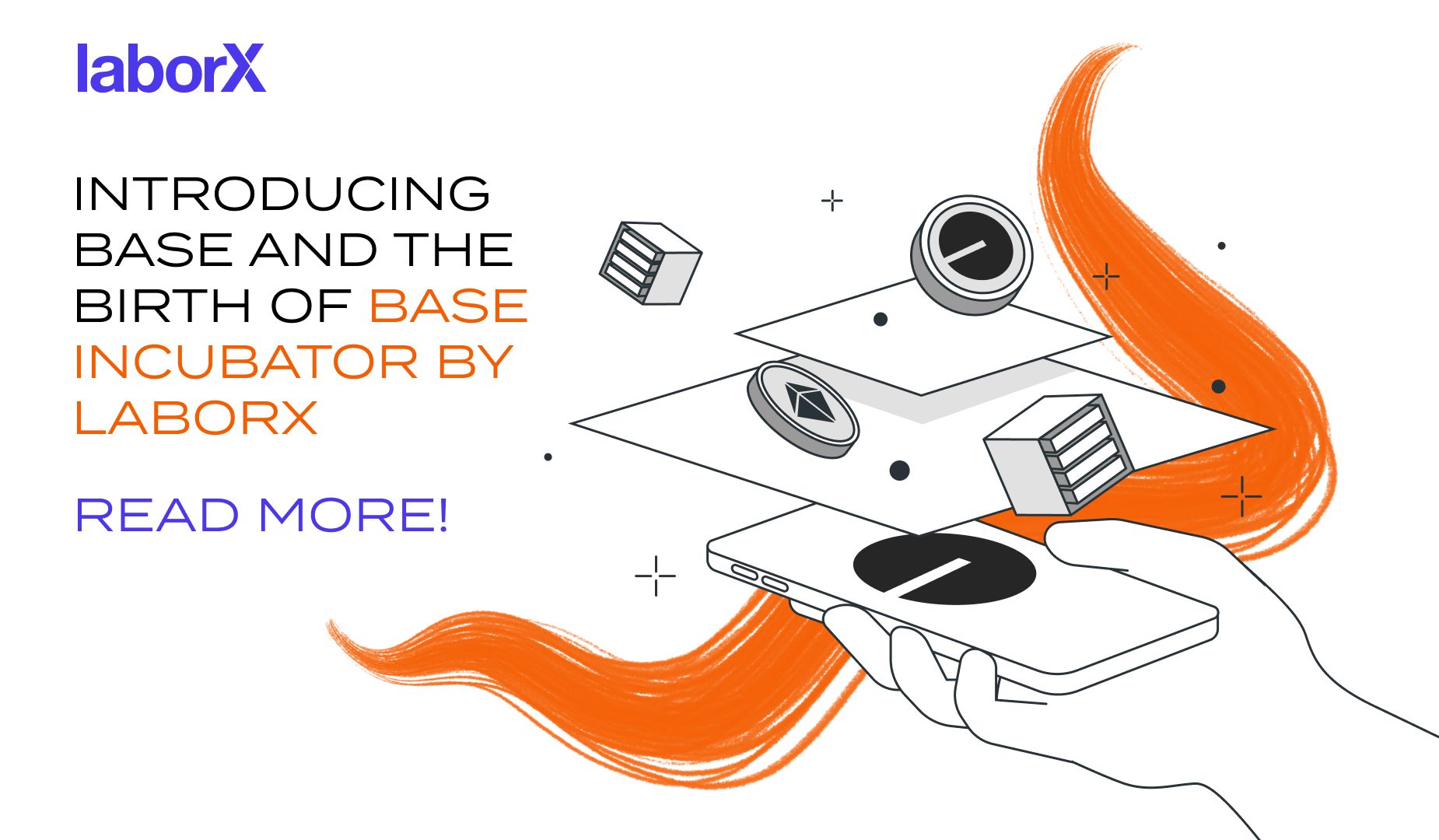
Embracing Change: HR in the World of Digital Assets
Hotcoin’s HR shares her journey from traditional industries to the world of Web3 and crypto, highlighting key insights on thriving in this space.
Read
You already have skills that can be used in Web3 – here’s how to put them into action!
2023 isn’t over yet, but it’s shaping up to be a pivotal year for Web3, employment, and personal finances, for several reasons:
All of these are good reasons why you might be thinking of picking up some work in the Web3 sector, and maybe even contemplating a complete career change. It could just be that the cost of living means you want to find some more work to help pay the bills. It could be that you’re ready for a change from your regular office job and want to experience the challenges and rewards of the fast-moving Web3 world. Or it could be that you’ve become disillusioned with the whole TradFi economy and the policies that have led to these problems in the first place, and you want to be part of the solution.
Whatever the reason, one of the best ways of generating some income is to take a hobby or a passion project and seek to monetise it.
One of the great things about doing this is that you’ll be creating a revenue stream from something you love doing, and perhaps have already been working on for a long time. Best case scenario, you won’t even need to spend any extra time on it, over and above what you already do. If you’ve already built a presence in the Web3 world, then monetising your skills or existing projects may not be too difficult.
On the other hand, you might be starting from scratch. If that’s the case, then the good news is that you do have talents that are marketable. If you already work in Web3, you probably know what they are, and likely have some ideas for how to go about using them to earn some extra cash. If you don’t, then you’ll just need to put some thought into what skills you have that might be transferable, and lay some foundations in the Web3 world before you can generate an income.
While some people are happy just to go with the flow and see where things take them, it’s always good to have a tentative plan and at least some broad goals to work towards.
For example, what’s your ultimate aim? To increase your income with a side hustle? To build up a new project to the stage where you can move into Web3 work full time, when it’s safe to give up your day job? To develop a side project so that you can move into being a founder and managing your own team, rather than working for other people?
Then there’s the question of what, exactly, you’ll be doing to achieve that aim. Again, you might have a good idea of how to get started. But one reality about working in Web3 is that one thing can lead to another extremely fast, and not always in the way you expect! A project you think is going to be a sure-fire winner can come to nothing; another element of it you never expected to take off can prove amazingly popular.
Part of succeeding in Web3 is recognising those opportunities and moving fast when they arise. In short, don’t be so wedded to one plan that you ignore a better one.
Getting down to the nuts and bolts of building up a side project: what can you do to earn extra cash? Here are a few broad guidelines:
So, what are some of the skills you might market, or products you might offer? Here’s a list of ten possibilities, and how they might come in useful:
Any of these can be done on a flexible basis, from a few hours a week up to full-time, depending on the scope of the project you are working on (whether for yourself or someone else).

What if you’re not proficient in any of these skills (yet)? Don’t worry! There are still plenty of opportunities in Web3.
Instead of launching your own business, learn as you go by finding another project you like and admire. Join the community, get involved and make yourself useful wherever you can.
Web3 tends to reward initiative and hard work, so if someone thinks you add value to the community, there’s a good chance that will lead to something better. At this stage, though, your priority is to learn more, find your way around the sector and the project, and make useful connections for the future.
Once you’ve decided what you want to do, it’s time to put it into action.
No matter what you plan to do, you should have some kind of portfolio to show prospective buyers what you’re capable of producing. Whether that’s a working dApp, a series of NFTs, a website, or a podcast, you need a ‘calling card’. Create this upfront, before you approach anyone offering your services.
Moreover, make sure you have a plan for how to develop your your product or service over time. It doesn’t need to be a formal roadmap, or a set of specific features, but you should have at least some ideas for how you could continue to provide value.
Now for the most critical part: finding a market. Ideally, in your Web3 journey to date, you will have been working to build a following already: engaging on Twitter, joining key Discords, establishing your online presence and reputation. If you’re a podcaster or vlogger, then YouTube and Instagram will be particularly important (though of course, you’ll use Twitter and other platforms to advertise that content).
Even if your presence on YouTube/Instagram/TikTok is not the aim in itself, it can still be a good way to raise your profile. As a developer, for example, you might give an overview of your dApp, or explain how to code a certain feature; as a pixel artist, you might show people your process for creating images. Similarly, as a vlogger, you might want to publish a few regular blog posts.
While this might push you outside your comfort zone, there are at least two good reasons to do it. Firstly, it diversifies the ways in which you build your audience and increases the top of your marketing ‘funnel’. Secondly, it allows you to experiment and learn more about what works – and whether you’re missing an important ingredient for your future success.
If you enjoy any degree of success, you’ll probably need to bring other people on board. While that’s a nice problem to have, it raises questions about finding good employees or partners – and about stepping into the role of leader for your new team.
Hopefully, you’ll have met some great people along the way in your journey through Web3. It’s always worth testing the water with a temporary agreement, because being stuck with the wrong people can be disastrous. An alternative is to work with freelancers, which can be very cost-effective but necessarily means that neither you nor they feel the loyalty to each other that would be the case for full team members. You can also check out our articles on fostering good Web3 workplace dynamics and cultivating leadership in Web3 teams.
As mentioned above, things can change very fast in Web3. Markets can rise and fall at dizzying speed; the ‘meta’ (the set of prevailing interests or current area of hype) can change overnight; new technologies and protocols can take the space by storm. Moreover, you can never predict what will truly hit home with your community and audience.
When these insights and pieces of information come your way, don’t ignore them! This doesn’t mean you should drop everything you’ve been doing and forget your original idea, of course. But the ability to recognise and seize these opportunities is vital. First-mover advantage is real, and you may not get a second chance to make the most of it.
Lastly, remember that this is about turning hobbies into income. Your new venture should be based on something that you’re passionate about – and hopefully, the fact that it becomes a revenue stream will not rob the joy from it.
There’s a quote by American author Mark Twain: ‘Find a job you enjoy doing, and you will never have to work a day in your life’. That’s the ideal here, that you turn a hobby into an income source that’s meaningful and secure enough that you can give up your regular job and work for yourself full-time in Web3, if that’s what you want.
This is not to suggest that you won’t have to work hard! Web3 can be full-throttle and unforgiving, requiring long hours and constant attention, especially if your success relies on keeping a large and active community engaged. But it can also be incredibly exciting, fulfilling and rewarding.
So, if you’re taking a hobby or side project you’ve worked on purely for the love of it, and trying to monetise it in the vibrant Web3 world, but you’re not having fun… maybe you’re doing something wrong?

Hotcoin’s HR shares her journey from traditional industries to the world of Web3 and crypto, highlighting key insights on thriving in this space.
Read
Discover how Web3 is reshaping HR practices with insights from a leading expert in the field.
Read
Discover Base's innovative L2 solution addressing scalability, security, and user experience challenges in crypto. Learn about Base Incubator by LaborX, fostering growth and innovation within the Base ecosystem.
Read